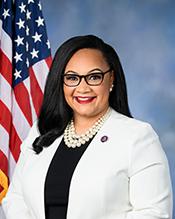0
0
0
Proposing an amendment to the Constitution of the United States providing that the rights extended by the Constitution are the rights of natural persons only.
12/15/2023, 3:52 PM
Summary of Bill HJRES 48
Bill 118 HJRes 48 proposes an amendment to the Constitution of the United States that would clarify that the rights granted by the Constitution are only applicable to natural persons. This means that corporations, organizations, and other artificial entities would not have the same rights as individuals under the Constitution.
The purpose of this amendment is to address concerns about the influence of corporate entities in politics and society. Some argue that corporations have been able to use their financial resources to exert undue influence on the political process and shape public policy in their favor. By specifying that only natural persons have rights under the Constitution, this amendment seeks to limit the power and influence of corporations and other artificial entities.
Supporters of the amendment believe that it is necessary to protect the democratic process and ensure that the rights enshrined in the Constitution are reserved for individuals. They argue that allowing corporations and other artificial entities to have the same rights as individuals can undermine the principles of democracy and lead to unfair advantages for powerful interests. Opponents of the amendment, however, argue that it could have unintended consequences and restrict the ability of corporations and other entities to engage in legitimate activities. They argue that corporations play an important role in the economy and society, and that limiting their rights could have negative impacts on innovation, job creation, and economic growth. Overall, Bill 118 HJRes 48 raises important questions about the role of corporations and artificial entities in society and the extent to which they should be granted rights under the Constitution. The debate over this amendment is likely to continue as lawmakers and the public consider the implications of restricting the rights of non-natural persons.
The purpose of this amendment is to address concerns about the influence of corporate entities in politics and society. Some argue that corporations have been able to use their financial resources to exert undue influence on the political process and shape public policy in their favor. By specifying that only natural persons have rights under the Constitution, this amendment seeks to limit the power and influence of corporations and other artificial entities.
Supporters of the amendment believe that it is necessary to protect the democratic process and ensure that the rights enshrined in the Constitution are reserved for individuals. They argue that allowing corporations and other artificial entities to have the same rights as individuals can undermine the principles of democracy and lead to unfair advantages for powerful interests. Opponents of the amendment, however, argue that it could have unintended consequences and restrict the ability of corporations and other entities to engage in legitimate activities. They argue that corporations play an important role in the economy and society, and that limiting their rights could have negative impacts on innovation, job creation, and economic growth. Overall, Bill 118 HJRes 48 raises important questions about the role of corporations and artificial entities in society and the extent to which they should be granted rights under the Constitution. The debate over this amendment is likely to continue as lawmakers and the public consider the implications of restricting the rights of non-natural persons.
Current Status of Bill HJRES 48
Bill HJRES 48 is currently in the status of Bill Introduced since March 30, 2023. Bill HJRES 48 was introduced during Congress 118 and was introduced to the House on March 30, 2023. Bill HJRES 48's most recent activity was Referred to the House Committee on the Judiciary. as of March 30, 2023
Bipartisan Support of Bill HJRES 48
Total Number of Sponsors
1Democrat Sponsors
1Republican Sponsors
0Unaffiliated Sponsors
0Total Number of Cosponsors
16Democrat Cosponsors
16Republican Cosponsors
0Unaffiliated Cosponsors
0Policy Area and Potential Impact of Bill HJRES 48
Primary Policy Focus
Civil Rights and Liberties, Minority IssuesComments
Sponsors and Cosponsors of HJRES 48
Latest Bills
Holocaust Expropriated Art Recovery Act of 2025
Bill S 1884December 12, 2025
Enduring Justice for Victims of Trafficking Act
Bill S 2584December 12, 2025
Increasing Investor Opportunities Act
Bill HR 3383December 12, 2025
Great Lakes Fishery Research Reauthorization Act
Bill S 2878December 12, 2025
Electric Supply Chain Act
Bill HR 3638December 12, 2025
State Planning for Reliability and Affordability Act
Bill HR 3628December 12, 2025
A joint resolution providing for congressional disapproval under chapter 8 of title 5, United States Code, of the rule submitted by the Office of the Secretary of the Department of Health and Human Services relating to "Policy on Adhering to the Text of the Administrative Procedure Act".
Bill SJRES 82December 12, 2025
Providing for consideration of the bill (H.R. 2550) to nullify the Executive Order relating to Exclusions from Federal Labor-Management Relations Programs, and for other purposes.
Bill HRES 432December 12, 2025
Mining Regulatory Clarity Act
Bill HR 1366December 12, 2025
Legacy Mine Cleanup Act of 2025
Bill S 2741December 12, 2025
Proposing an amendment to the Constitution of the United States providing that the rights protected and extended by the Constitution are the rights of natural persons only.
Bill HJRES 54January 30, 2024





